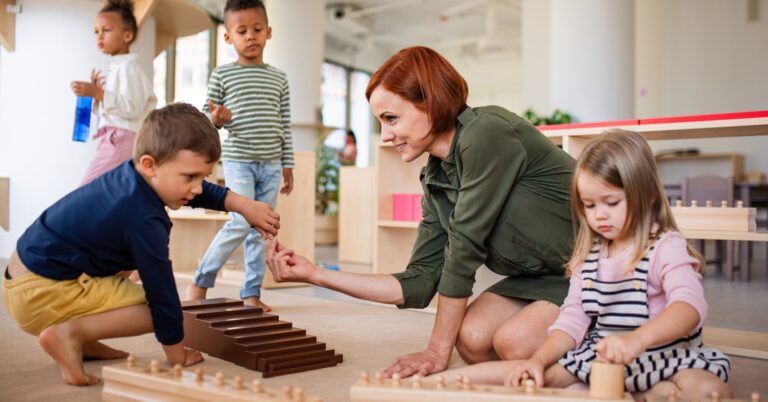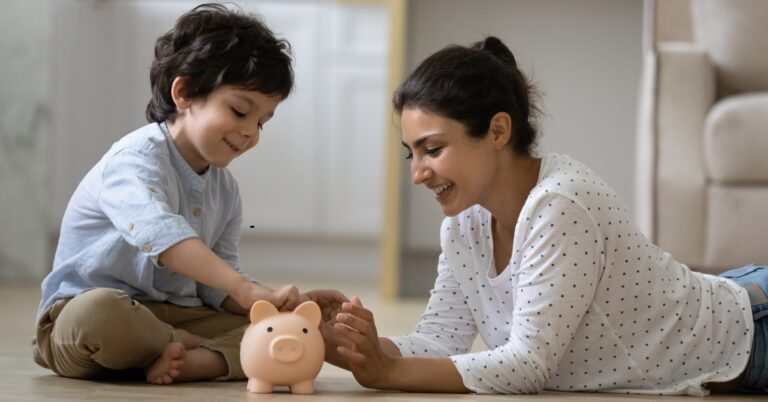If eco-friendliness, cost-effectiveness, and your newborn’s comfort are high on your list of priorities, choosing cloth diapers is a decision you won’t regret. As a seasoned parent and a mindful consumer, I have found cloth diapers to be the superior option for numerous reasons.
In fact, I’ve discovered that there are 6 compelling factors that make cloth diapers the undoubted winner over their disposable counterparts. These reasons range from environmental considerations to long-term financial savings.
Moreover, cloth diapers’ impact on your baby’s health is also noteworthy. They lack the harsh chemicals present in disposable diapers, reducing your newborn’s exposure to potential allergens and irritants.
Furthermore, cloth diapers offer an unmatchable level of comfort for your little one. The soft fabric against your baby’s skin is gentle and soothing, unlike the plastic feel of disposables.
Lastly, there’s an undeniable sense of satisfaction in knowing that you’re making a choice that benefits not only your child but also our planet. With every cloth diaper change, you’re contributing less waste to landfills.
In this article, we’ll delve deeper into these 6 compelling reasons for choosing cloth diapers for your newborn if these considerations indeed matter to you. Let’s begin our exploration with one of the most visible benefits – the significant cost savings over time.
1. Significant cost savings over time
When you first look at the price tag, cloth diapers might seem more expensive than their disposable counterparts. However, the upfront cost can be deceiving. The true cost of diapering your child becomes apparent when you consider the long-term perspective.
Disposable diapers are a recurring expense. You might end up changing around 6,000 diapers before your child is potty trained. At an average cost of 20 cents per disposable diaper, that’s a whopping $1,200! And that’s just for one child.
Cloth diapers, on the other hand, require an initial investment but save you money in the long run. A decent stash of cloth diapers can range from $200 to $600, depending on the brand and style you choose. And these can be reused for years – even for your next child!
- Upfront cost: $200-$600
- Long-term savings: $600-$1000 per child
Furthermore, cloth diapers have good resale value. Many parents successfully sell their used cloth diapers for half of the original price or even more. So, in reality, the actual cost of cloth diapering can be much less than the initial investment.
2. Positive impact on the environment
The environmental footprint of disposable diapers is alarming. It’s estimated that around 20 billion disposable diapers are used each year in the U.S. alone, contributing immensely to landfill waste. Each of these diapers takes up to 500 years to decompose, posing a significant threat to our environment.
On the contrary, cloth diapers are reusable and generate considerably less waste. You can wash and reuse them multiple times before they wear out. Even when they do, cloth diapers decompose much faster than disposables, reducing their environmental impact.
Many cloth diaper brands are made from organic materials, offering an even more eco-friendly choice. These diapers avoid the use of harmful chemicals during production, further minimizing their environmental footprint.
Alongside the ecological benefits, using cloth diapers can also instill a sense of environmental responsibility in your family. By choosing cloth diapers, you’re showing your child the importance of making choices that benefit our planet.
3. Beneficial for your newborn’s health
Disposable diapers often contain chemicals, dyes, and fragrances that can be harsh on your newborn’s sensitive skin. Babies with sensitive skin may develop diaper rash or allergic reactions due to these substances.
Cloth diapers, however, are made from natural materials like cotton, bamboo, or hemp. These materials are softer and gentler on your baby’s skin. They’re breathable and allow for better air circulation, reducing the risk of diaper rash.
Cloth diapers are free from harmful chemicals like phthalates and volatile organic compounds (VOCs) found in some disposable diapers. This means less exposure to potentially harmful substances for your little one.
4. Superior comfort for your newborn
Put yourself in your baby’s shoes – or rather, diapers. Would you prefer to wear a soft, breathable fabric or a plastic-like material for most of the day? The answer is quite obvious.
Cloth diapers are made from natural fibers like cotton, bamboo, or hemp, which are gentle on your baby’s skin. Unlike disposables, cloth diapers do not have a plastic feel. They are soft and comfortable, reducing the chance of irritation and diaper rash.
Cloth diapers provide better air circulation compared to disposable ones. This can be particularly beneficial during hot weather, as it helps to keep your baby cool and comfortable.
The comfort factor extends beyond just the material. Cloth diapers come in a variety of styles and designs with adjustable fittings. You can ensure a perfect fit for your baby’s size and shape, avoiding too tight or loose diapers that could cause discomfort.
5. Versatility of cloth diapers
Cloth diapers offer a versatility that disposables simply can’t match. They are available in a wide array of styles, designs, and types, allowing you to find the perfect fit for your baby’s unique needs.
There are all-in-one cloth diapers that closely resemble disposable ones in their ease of use. Prefolds and flats, on the other hand, are more traditional types that require folding and fastening but offer high absorbency.
Fitted cloth diapers are shaped like disposables and provide a snug fit. Pocket diapers have a pocket for you to insert the absorbent material of your choice. Hybrid cloth diapers give you the flexibility to use either a reusable or disposable insert.
These different styles also allow you to adjust the diaper’s absorbency according to your needs, such as for nighttime use or heavy wetters.
6. Potential for earlier potty training
An interesting advantage of cloth diapers is their potential to aid in earlier potty training. Unlike disposable diapers, which are designed to keep your baby feeling dry, cloth diapers allow your child to feel the sensation of wetness.
This can be beneficial when you start potty training, as your child can associate the discomfort of being wet with the need to use the bathroom. This acknowledgment of the wet sensation can often lead to a smoother and quicker potty-training experience.
Of course, every child is different, and the timing of potty training can vary greatly. However, many parents who use cloth diapers report that their children showed readiness for potty training at an earlier age compared to those using disposables.
Making the choice that’s right for you
When it comes to diapering your newborn, the decision is deeply personal and dependent on your individual circumstances. We believe in making informed choices that align with your values and priorities as a parent.
Choosing cloth diapers can be a significant step towards a more sustainable and health-conscious lifestyle. It’s a choice that not only benefits your baby but also our planet. It’s a commitment to reducing waste, minimizing exposure to harsh chemicals, and prioritizing comfort.
However, it’s essential to acknowledge that cloth diapering requires an upfront investment and a commitment to regular washing. But as we’ve discussed, it can also lead to significant savings over time, a cleaner environment, and potentially even earlier potty training.
We hope this article has provided you with valuable insights into the benefits of choosing cloth diapers for your newborn. Remember, every parenting journey is unique. Whichever choice you make, know that it is the right one for you and your family at this moment.








